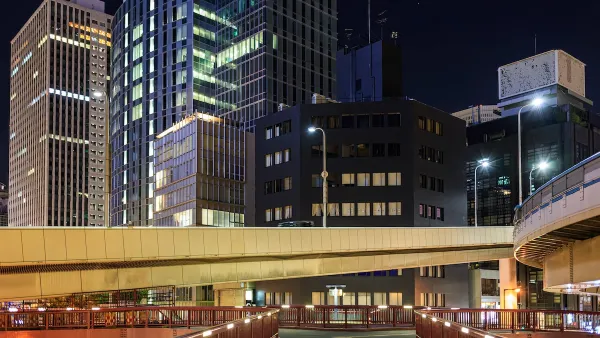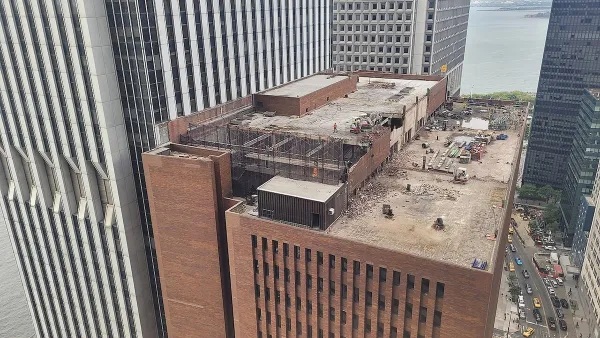A relative lack of conversions from office to residential—the adaptive reuse model driving the housing market in many urban areas—makes the Washington, D.C. region a perfect place to study the factors that make or break an adaptive reuse proposal.

Cities around the country have spent recent years converting old office buildings into residential uses. The wave of adaptive reuse projects in some local cases could be credited with creating entirely new residential neighborhoods.
"Yet despite considerable media coverage, office conversion has been comparatively limited in greater Washington," according to Payton Chung.
Chung cites research from a 2016 report by Jones Lang LaSalle that counted only 26 conversion projects in Washington, D.C.; Montgomery County, Fairfax County, and Arlington County combined. The whole D.C. region has completed "scarcely more" office conversions than the city of Baltimore alone.
According to Chung, the reasons for D.C.'s resistance to office conversions fit into two broad categories: a relatively healthier office market and a lack of specific incentives adaptive reuse. That could be about to change, however, as "Fairfax County and Montgomery County have recently commissioned studies to investigate office building adaptive reuse." In studying the issue, a couple of useful themes have emerged that can help determine the feasibility of adaptive reuse in other contexts, namely, location, price, and layout.
Chung's article goes into a lot more detail on each of those three considerations.
FULL STORY: Not every obsolete office building is cut out to become apartments

Analysis: Cybertruck Fatality Rate Far Exceeds That of Ford Pinto
The Tesla Cybertruck was recalled seven times last year.

National Parks Layoffs Will Cause Communities to Lose Billions
Thousands of essential park workers were laid off this week, just before the busy spring break season.

Retro-silient?: America’s First “Eco-burb,” The Woodlands Turns 50
A master-planned community north of Houston offers lessons on green infrastructure and resilient design, but falls short of its founder’s lofty affordability and walkability goals.

Test News Post 1
This is a summary

Analysis: Cybertruck Fatality Rate Far Exceeds That of Ford Pinto
The Tesla Cybertruck was recalled seven times last year.

Test News Headline 46
Test for the image on the front page.
Urban Design for Planners 1: Software Tools
This six-course series explores essential urban design concepts using open source software and equips planners with the tools they need to participate fully in the urban design process.
Planning for Universal Design
Learn the tools for implementing Universal Design in planning regulations.
EMC Planning Group, Inc.
Planetizen
Planetizen
Mpact (formerly Rail~Volution)
Great Falls Development Authority, Inc.
HUDs Office of Policy Development and Research
NYU Wagner Graduate School of Public Service




























